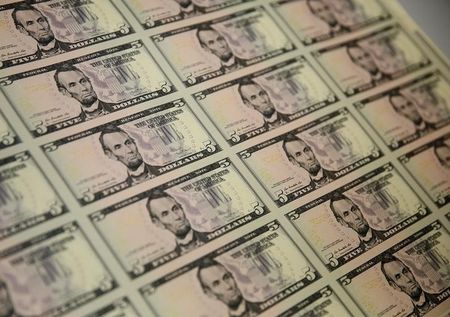Investing
Asian currencies tumbled on Monday as the dollar crossed 20-year highs on expectations of more monetary policy tightening, while the euro hit new lows on fears of a worsening energy crisis in Europe.
China’s yuan was among the worst performing currencies in Asia, down 0.4% to over 6.9 against the dollar, its weakest level in more than two years. Caixin data showed on Monday that the country’s services sector grew more than expected in August, thanks to robust consumer spending through the month.
But the sector’s pace of growth slowed slightly from July. Data released last week also showed that China’s manufacturing sector shrank in August, amid increasing pressure from COVID-19 lockdowns and an energy shortage.
The Singapore dollar fell 0.2%, while the South Korean won shed 0.6%. Most Asian currencies are sensitive to moves in the yuan, given China’s role as a trading hub for the region.
The dollar index jumped 0.5% to a new 20-year high of over 110, while dollar index futures also rose as better-than-expected nonfarm payrolls data gave the Fed more space to keep raising interest rates at a fast pace.
Traders are now pricing in a 57% chance of a 75 basis point hike by the U.S. central bank later this month. Higher U.S. interest rates narrow the gap between risk-free and risky debt, reducing the appeal of high-yielding Asian currencies. They also reduce dollar liquidity, which weighs on foreign investment in Asia.
The dollar index, which weighs the greenback against a basket of currencies, also benefited from a sharp drop in the euro.
The single currency slumped nearly 0.4% to a 20-year low of 0.9901 to the dollar, after Russia over the weekend shut a key gas pipeline to the euro zone.
The move points to increased pressure on the bloc to source gas for heating during the winter season, given that Russia is the group’s main source of gas.
The energy crisis also reduces the extent to which the European Central Bank can tighten monetary policy. The bank is widely expected to raise interest rates when it meets this week, although the hike appears to be already priced into the euro.




